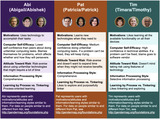
Handy quick-reference summarizing the three GenderMag personas.
- Subject:
- Computer Science
- Material Type:
- Diagram/Illustration
- Primary Source
- Author:
- Lara Letaw
- GenderMag Project
- Date Added:
- 09/16/2022

Handy quick-reference summarizing the three GenderMag personas.
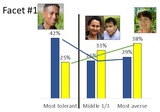
Useful graphics and slides for dispelling fears about GenderMag and stereotyping.

One-page definitions sheet.

Very short form for collecting in-class questions and comments about GenderMag.
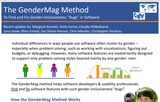
Two-page summary of the GenderMag walkthrough method.
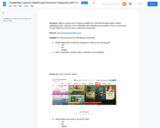
An example homework that runs students through a given scenario.
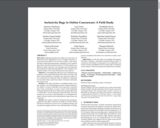
Research paper about gender-inclusivity issues found in online CS courses---an an automated tool (AID/Courseware) for detecting those issues.

Active learning lecture involving identifying cognitive styles for technology usage. Includes team cognitive styles discussion. LAST UPDATE: Changed cover image

Example of how to introduce cognitive styles to students, student teams, or any group. Cognitive styles = cognitive differences influencing how people prefer to interact with technology. Applicable and adaptable to engineering, computing, technology, computer science, college-level, high school, and corporate teams. Icebreaker. Diversity awareness. Theory of Mind. Meta-cognition.

Example of how instructors can share their cognitive styles with their class, with template.

A slider tool students can use to reflect on how their cognition affects how they interact with technology.
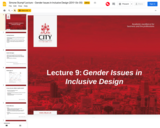
Learning Outcomes: (1) Explain conceptualisations of gender and gender differences, (2) Describe gender issues in ICT/STEM and inclusive design, (3) Express the basic components of the GenderMag method, (4) Apply the GenderMag method, (5) Be able to formulate a plan to evaluate a software product to investigate gender issues, (6) Critically appraise work on gender and inclusive design

A presentation for more advanced students who already have an understanding of personas and cognitive walkthroughs. Good for introducing gender-inclusive design.
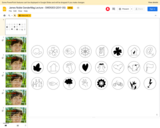
GenderMag lecture for interface design course.
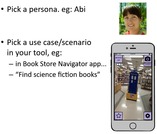
Teaches how to run a GenderMag walkthrough session.

General slide deck for teaching the GenderMag walkthrough method.
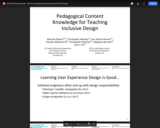
Accompanying powerpoint presentation for "Pedagogical Content Knowledge for Teaching Inclusive Design" (Oleson et al., 2018)
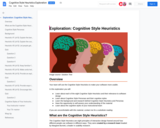
A reading about the GenderMag Cognitive Style Heuristics (CSH) with embedded examples and quizzes.
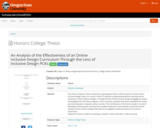
ABSTRACT: The online computer science classroom is growing, but there is little research on how to teach inclusive design online. As a result, online CS students are graduating without learning how to avoid bias in their software designs. Through the lens of the Inclusive Design Pedagogical Content Knowledge (PCK), this thesis analyzes a set of curricular activities that were embedded into online post-baccalaureate computer science courses. The contributions of this work include: (1) a set of takeaways outlining what I learned from student responses to the activities and (2) the second iteration of the Inclusive Design PCKs that can be applied in both the online and in-person classrooms.
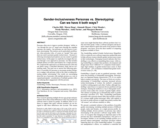
CITATION: Gender-Inclusiveness Personas vs. Stereotyping: Can We Have it Both Ways? Charles Hill, Maren Haag, Alannah Oleson, Chris Mendez, Nicola Marsden, Anita Sarma, Margaret Burnett, ACM Conference on Human Factors in Computing Systems (CHI'17), May 2017, pp. 6658-6671. ABSTRACT: Personas often aim to improve product designers' ability to "see through the eyes of" target users through the empathy personas can inspire - but personas are also known to promote stereotyping. This tension can be particularly problematic when personas (who, of course as "people" have genders) are used to promote gender inclusiveness - because reinforcing stereotypical perceptions can run counter to gender inclusiveness. In this paper we explicitly investigate this tension through a new approach to personas: one that includes multiple photos (of males and females) for a single persona. We compared this approach to an identical persona with only one photo using a controlled laboratory study and an eye-tracking study. Our goal was to answer the following question: is it possible for personas to encourage product designers to engage with personas while at the same avoiding promoting gender stereotyping? Our results are encouraging about the use of personas with multiple pictures as a way to expand participants' consideration of multiple genders without reducing their engagement with the persona. VIDEO: https://www.youtube.com/watch?v=6f1aJhWGfLM